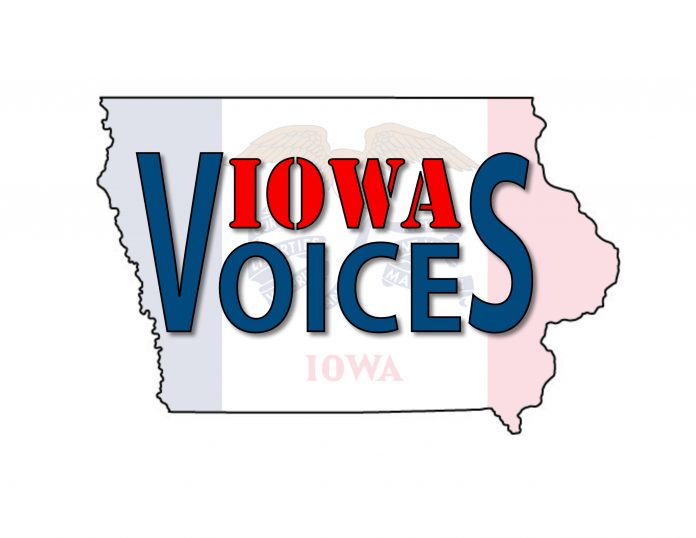As chair of the Jasper County Republicans and a current candidate for Jasper County Supervisor, I’ve had the privilege of meeting so many members of our community and hearing about what matters most to them. I look forward to these conversations, but it’s not always easy hearing about the struggles our neighbors are going through – that’s especially true during the times I’ve talked with those who’ve been impacted by the opioid epidemic.
Through these discussions, I’ve learned just how easily those who struggle with pain can fall into addiction after taking opioids, as well as the trauma that can result from that addiction. These personal tragedies have materialized into heartbreaking statistics here in Iowa, where opioid overdose deaths have more than tripled over the last decade.
That’s why I believe it’s urgent for lawmakers to take decisive action to ensure patients know about and have better access to non-addictive treatments for pain.
This field of medicine is making some truly incredible advancements that could be a huge help in our fight against the opioid epidemic. Earlier this year, it was reported that a first-of-its-kind, non-opioid medicine for acute pain could be approved by regulators for public use in the near future. This means that soon patients will be able to treat their pain without having to rely on highly addictive drugs they could get hooked on. But we’ll only reap the good that comes with these safer treatments if patients are able to access them at an affordable price.
Thankfully, a group of lawmakers in Congress have introduced legislation to do just that: the Alternatives to Prevent Addiction in the Nation (Alternatives to PAIN) Act. Iowa is fortunate to have representatives who are so attentive toward this pivotal issue, as Representative Mariannette Miller-Meeks was one of the bill’s original co-sponsors. This legislation aims to make non-opioid treatments accessible and affordable for our nation’s seniors who are enrolled in the federal healthcare program Medicare. We need to expand access to patients of all ages, but seniors in particular have a heightened exposure to opioids due to their greater need for pain relief from the ailments and injuries that can occur as we get older.
The Alternatives to PAIN Act will deliver non-opioid access to seniors by mandating that under Medicare Part D plans, patients pay no more for non-opioids than they would for more addictive, generic opioids. The bill will also increase awareness of the treatment options that are out there by encouraging the continued dialogue between patients and their healthcare professionals about preferences in pain management choices.
Here in Iowa, we need our congressional delegation to join Representative Miller-Meeks in working to turn this bill into law, as it’ll help make sure that Iowans don’t develop an opioid dependency simply because their insurance forced them to rely on opioids, the only treatment they could afford.
While not a silver bullet that solves every factor fueling the opioid crisis, the Alternatives to PAIN Act takes necessary first steps toward combating the opioid-caused devastation our communities have felt for too long. I urge our representatives in Congress to do the right thing and pass this life-saving bill.
- Thad Nearmyer
Monroe













As someone who has been living with and managing pain and inflammation for over 20 years now, I’ve discovered that there are many viable alternative options available for managing pain. You don’t need to take opioids to obtain real relief.
NSAIDs (ibuprofen, Tylenol) are also not your friends. They’ll chew up your stomach lining, eat your joints, and, taken in quantity, can cause excruciating liver damage. Given time, the liver damage and stomach lining will eventually heal, but–knees, hips, and shoulders can be permanently affected. The sooner you stop taking all NSAIDs, the better.
Soaking in a bath of warm water with dissolved baking soda and epsom salts can be quite beneficial. Use no more than 1 cup of each. (using a lot less is fine, too) Add a few drops lemongrass or lavender oil if you have it available.
Vitamin D, the sunshine vitamin, is an excellent anti-inflammatory. If your D is low, your inflammation will be high. Other excellent sources of D include lanolin oil (topical use only).
The right kind of Vitamin C can also be beneficial.
Diet plays a huge role in causing or relieving inflammation.
Foods that cause inflammation:
* Seed oils (found in margarine, mayo, fast food, snack foods). Avoid canola oil, especially.
* Tomatoes, potatoes, peppers, eggplant, tomatillos–Eat sparingly and not too often.
* Soy, soy sauce, and anything that contains MSG
* Food additives like meta-bisulfite (in canned chiles, dried coconut, dried fruit, and trace amounts in store-bought bread; read labels)
* GMO wheat, oats, corn, and soy sprayed with glyphosate/RoundUp and other pesticides
* Any animals fed GMO grain (like poultry), also any eggs from poultry fed GMO grain.
* Processed starches, processed sugar
* Pasteurized milk
Foods that are anti-inflammatory:
* Garlic
* Onions
* Organic apples (conventionally grown apples are heavily sprayed with pesticides)
* Dark leafy greens (like kale, Swiss chard)
* Brussel sprouts, cabbage
* Wild-caught salmon, anchovies (for the Omega-3 oils)
* Red meat (contains vital amino acids)
* Seaweed
* The safe variety of blue-green algae (look for this as a dietary supplement)
Spices that are anti-inflammatory:
* turmeric (also available in capsule form as “Inflammatone”)
* raw ginger
* organic Ceylon cinnamon (not the “regular” cinnamon)
* lemongrass
Spices aren’t an instant source source of pain relief, but must be taken daily so they build up in your tissues.
Potential pro/con: turmeric, ginger, and cinnamon can also thin the blood. It’s always best to work with an alternative medical practitioner to achieve the best treatment and limit potential for future medical issues.
Another natural, alternative pain treatment is quercetin (derived from apple skins and onions). Quercetin works within minutes, but not everyone can tolerate it (can cause nausea at effective dose levels). I have also personally found it inadvisable to take more than one or two doses in a row.
I try to change up my anti-inflammatories and not take the same thing all the time so I can keep receiving the greatest benefit from my efforts and not become too dependent on any one therapy or develop bad reactions.
Organic raw nuts like almonds and cashews also have anti-inflammatory properties, but don’t thin the blood. Follow the dietary serving suggestions of a few small handfuls daily.
Other possible options to explore:
* colloidal silver
* Black cumin seed
* Wormwood – believe it or not, it’s a useful anti-inflammatory (use with medical supervision)
* Ivermectin
* Noni juice
* Sarsaparilla root – used to flavor root beer, can be made into tea
* Non-psychedelic mushrooms that have anti-inflammatory and healing properties.
Note: While marijuana/THC is being touted as a cure-all for many medical conditions, I can’t really recommend it. For many people, it appears to have as much of a serious downside as opioids. There are many excellent alternatives for pain relief that are much safer. You don’t need to ruin your life experimenting with marijuana/THC.